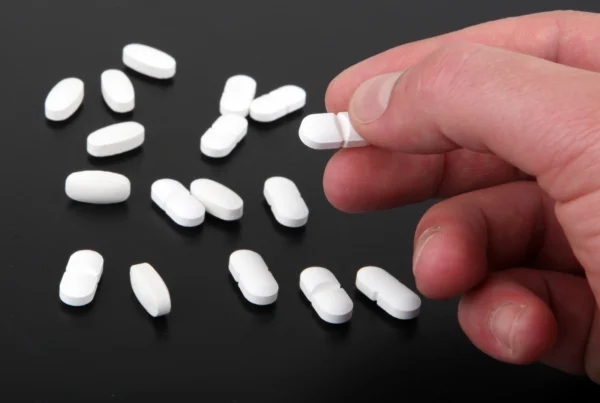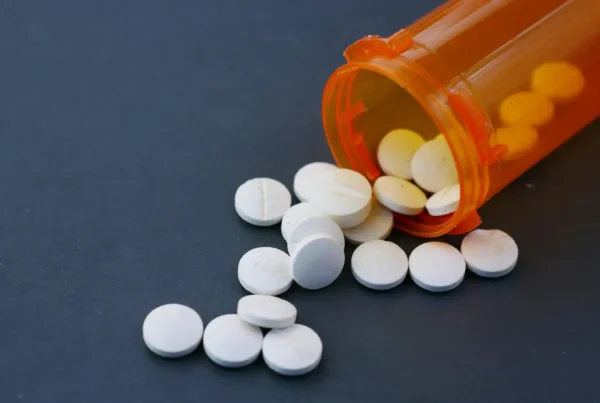
Table of Contents
Key Points
- Lyrica is the brand name of the drug pregabalin. It is used to treat neuropathic pain, seizures, and fibromyalgia.
- Allergic reactions to Lyrica can be life-threatening and require immediate emergency medical attention.
- Withdrawal symptoms can be uncomfortable, such as gastrointestinal problems, mood changes, headaches, and excessive sweating, but are not life-threatening.
- Supportive treatments such as anti-nausea or anti-anxiety medication can help address some of the withdrawal symptoms, as well as positive lifestyle choices such as hydration, nutrition, and rest.
- When taking Lyrica and discontinuing its use, you should work closely with your healthcare provider to monitor your health condition and possible Lyrica side effects, create a tapering plan, and monitor for withdrawal symptoms. At the same time, you lower or discontinue your Lyrica dose.
Common signs of Lyrica withdrawal include gastrointestinal problems, anxiety, depression, insomnia, headaches, irritability, excessive sweating, flu-like symptoms, and seizures. Withdrawal symptoms can last for one to seven days. Tapering your Lyrica dose slowly over a minimum of one week can reduce the risk of experiencing withdrawal symptoms.
What Is Lyrica?
Lyrica is the brand name for the drug pregabalin.[1] The Food and Drug Administration (FDA) approved it as an anti-epileptic or anticonvulsant drug. Lyrica slows down the impulses in the brain that cause seizures. It also affects the brain chemicals that send pain signals through the nervous system, effectively blocking nerve pain.
Pregabalin is structurally similar to the neurotransmitter gamma-aminobutyric acid (GABA) but does not bind to GABA receptors. Pregabalin can cross the blood-brain barrier. Pregabalin binds to presynaptic voltage-gated calcium channels in the central nervous system and decreases the release of excitatory neurotransmitters. [2] This may be the reason for its analgesic and anticonvulsant effects.
The FDA has approved Lyrica to treat: [3]
- Neuropathic Pain: neuropathic pain is associated with diabetic peripheral neuropathy, post-herpetic neuralgia (caused by shingles), and spinal cord injuries.
- Partial onset seizures: it can be used in people older than the age of four as an adjunctive therapy for seizures, such as epilepsy.
- Fibromyalgia
Lyrica is used off-label to treat [4]
- Generalized anxiety disorder
- Social anxiety disorder
- Insomnia
- Chronic pain conditions
- Uremic pruritus
- Chronic cough
- Restless leg syndrome
- Complex regional pain syndrome
- Prophylaxis of migraine
- Trigeminal neuralgia
Side Effects of Lyrica

- Dizziness
- Drowsiness
- Blurred Vision
- Dry mouth
- Nausea
- Swelling of the ankles, feet, hands
- Trouble concentrating
- Vomiting
- Increased appetite
- Weight gain
Serious side effects of Lyrica should be reported to your medical provider immediately, or seek emergency medical attention, including: [6]
- Allergic reactions or angioedema (skin rash, itching, hives, swelling of the face, eyes, lips, tongue, arms, or legs, trouble swallowing or breathing)
- Vision problems
- Blue-colored skin, lips, fingers, and toes
- Skin sores with diabetes
- Easy bruising or unusual bleeding
- Worsening mood, feelings of depression, suicidal thoughts, or self-harm
- Weak or shallow breathing, trouble breathing
- Confusion, extreme drowsiness, or weakness
- Unexplained muscle pain, tenderness, or weakness (especially if it also includes feeling unwell and a fever)
Lyrica Withdrawal
Stopping Lyrica abruptly can cause seizure activity to resume and for the person to experience withdrawal symptoms.
Symptoms of Lyrica withdrawal include: [7]
Gastrointestinal problems: nausea, vomiting, diarrhea
Anxiety: including increased nervousness, restlessness, and panic attacks
Depression: loss of interest in previously pleasurable activities, feeling hopeless
Insomnia: difficulties falling and staying asleep
Headaches: recurring and intense headaches
Irritability: angering easily and feeling emotionally unstable
Hyperhidrosis: excessive sweating
Flu-like Symptoms: feeling ill, muscle pain, fatigue
Seizures: If Lyrica has been used for seizure control and is stopped abruptly, it increases the risk of the seizures resuming.
Managing Lyrica Withdrawal Symptoms
To reduce the risk of pregabalin withdrawal symptoms, it should be tapered gradually over a minimum of one week.[8] Withdrawal symptoms occur within a day and can last up to seven days. If you experience withdrawal symptoms, your dose should not be reduced any further until your withdrawal symptoms have stopped. Once they have passed, you can reduce your dose more slowly or by smaller amounts to reduce the risk of withdrawal symptoms.
Staying hydrated, eating well, and resting are self-care steps that can help manage withdrawal symptoms. Staying hydrated is particularly important if you are experiencing excessive sweating as one of your withdrawal symptoms.
If you have been taking Lyrica off-label to treat mental health conditions such as anxiety or insomnia, you may benefit from behavioral health support such as cognitive behavioral therapy (CBT). CBT is an evidence-based treatment for anxiety, depression, and insomnia.
While no medication can eliminate Lyrica withdrawal symptoms, if your symptoms are severe, your medical provider may prescribe a medication to help with specific symptoms. For example, an anti-nausea medication if you are struggling with gastrointestinal difficulties or an anti-anxiety medication if you are struggling with panic attacks.
Throughout taking Lyrica and discontinuing its use, you should work closely with your healthcare provider to manage your health conditions and any side effects from taking Lyrica.
Discontinuing Lyrica and Minimizing Withdrawal
Stopping Lyrica abruptly or after prolonged use can increase your risk of experiencing withdrawal symptoms. The severity of withdrawal symptoms depends on your physiology, how long you have used Lyrica, and how much you have been taking. While withdrawal from Lyrica can be uncomfortable, it is manageable, especially with medical support.
Numerous treatment options can support you through Lyrica withdrawal. These may include medical detox, inpatient treatment, or outpatient treatment. Most important is that the treatment program supports you through your withdrawal symptoms and helps you establish a long-term recovery program that meets your needs and lifestyle.
Frequently Asked Questions
Below are some of the most frequently asked questions regarding Lyrica withdrawal
OCEAN RECOVERY EDITORIAL GUIDELINES
The internet contains a vast amount of misinformation, but when it comes to your health only peer reviewed, research centered data matters. At Ocean Recovery, all content published throughout our website has been rigorously medically reviewed by a doctorate level clinician, and cross checked for medical accuracy. Our editorial process helps our readers trust that the information they are consuming is factual and based upon scientific data. Your health is our top priority, find out more about how we safeguard the integrity of information on our website. Read More About Our Process




